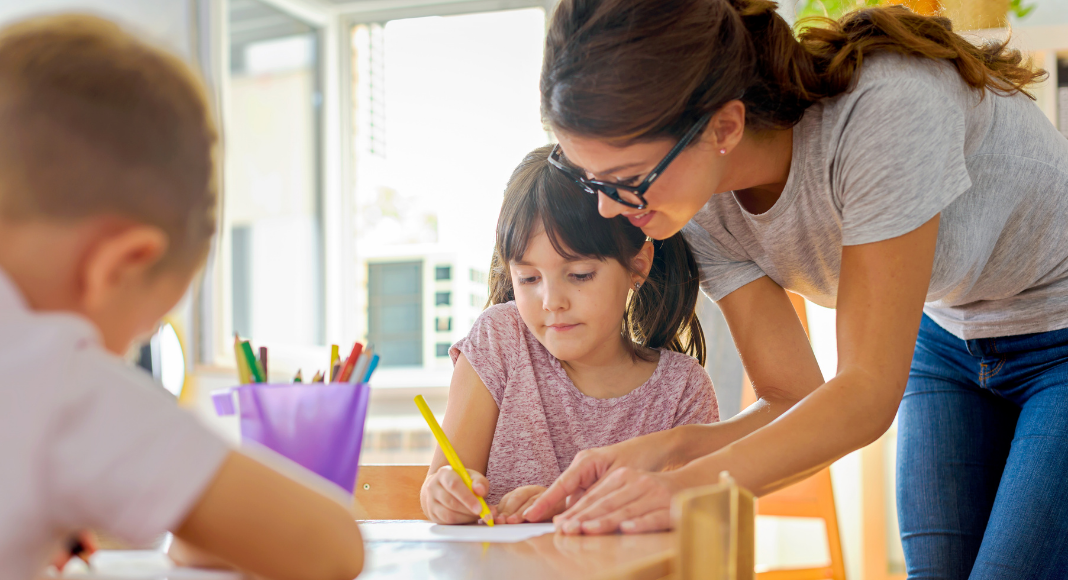 The number of decisions we have to make as parents is astounding. For me, it’s not the big ones that seem to weigh on me like a ton of bricks. Whether to breastfeed, which daycare to use, or when to have a second child. These decisions may have high stakes, but they feel manageable. You can take a beat to make the big choices that will clearly have a significant impact.
The number of decisions we have to make as parents is astounding. For me, it’s not the big ones that seem to weigh on me like a ton of bricks. Whether to breastfeed, which daycare to use, or when to have a second child. These decisions may have high stakes, but they feel manageable. You can take a beat to make the big choices that will clearly have a significant impact.
It’s the minutia that I find so deeply challenging. The constant onslaught of options never let up. What to cook for dinner or send for lunch, whether to let my son watch Elmo for the hundredth time this week or how to do bedtime when work ran late, and it’s already 8 p.m. For these decisions, the sense of urgency tricks me into thinking that the stakes are still sky high and that every step I take could make or break my kid’s entire existence and future.
Luckily, I have tons of experience feeling the pressure to do everything right while knowing unequivocally that there’s no way that will happen. I taught middle school for five years, and every day was a roller coaster of wins, losses, and fails – some minor and some epic.
As with parenting, teaching feels profoundly loaded with compulsions to set an example, model your values, and shepherd small humans to a place where they can be happy, find success, and have a positive impact on society.
When you’re a teacher, the kids in your class are counting on you to do right by them, to be their champion and their guide, to prepare them for tests and life. It is no small task, and it comes with a pretty high emotional tax. You feel responsible for everything, and some days you feel in control of nothing. Sound familiar?
The best teachers recognize that this work is a blessing and a privilege unlike any other. This is work that shapes our world and has the ability to change it. At their core, great teachers are magicians. They are well-planned but responsive, clear and compassionate, firm but flexible. In more ways than I can count, I call upon how I developed into a decent teacher to try to be a more decent parent, and it saves me daily. Here’s a cheat sheet.
1. Planning Backwards
So much of good teaching is good planning. You plan meticulously to align your lessons to the goals of your grade, your school, your values. As a parent, ask yourself what values you want to impart to your kids. What kind of person do you want your child to become? This question helps to remind me that not every decision is life-changing, but I have tons of opportunities to model behaviors and create a dialogue with my kid about what matters most to me. I think too often, we spend time obsessing over what we want to give our kids. What about what we want our kids to give us? To give to the world? Perhaps we should flip the script and consider what we want from our kids instead of for them.
2. Understanding Roles
I have realized that really good teachers and really good parents share at least one very important quality – they understand the weight of their responsibilities for the kids in front of them. They’re able to transfer a deep sense of that responsibility to the kids themselves. They know that they have the power to make lives better, to raise consciousness and understanding, and to plant seeds that never stop growing.
This is not to say that if you’re a good teacher or a good parent that everything will be perfect and that you can control everything that happens. If you’ve spent five minutes with a child in any setting, you know this to be patently false. But here’s the thing: you don’t have to control everything to exercise control over something. In fact, you do have total control over the most important factor here – you.
How you react and respond to joy, frustration, excitement, challenge, and many other human experiences is the most powerful teaching and parenting tool you have. With that knowledge in mind, parents, like teachers, can empower kids to take ownership over their lives. The result is that in each of these dynamic student-teacher and parent-child relationships, you have two people working relentlessly towards the same essential goals.
3. Leveraging Strengths
To reach kids, whether you’re their parent or their teacher, you need to understand what they bring to the table. This goes back to planning backward. What does your kid offer that can provide an entry point into conversations and experiences that shape what they know, what they believe, and ultimately who they become? My son is strong-willed, just like his mama, and I know that because of this, he brings a level of passion, perseverance, and dedication that needs to be highlighted and harnessed to help him learn and grow. All kids, all people, have strengths, even when they’re throwing a tantrum in the grocery store.
4. Long Game, Quick Wins
No matter how it seems, I promise you that not every decision is wrought with immediate and permanent consequences (someone please repeat this back to me next time I’m at the grocery store). Parenting is about playing the long game, where you won’t necessarily see the fruits of your labor for a while.
Sometimes you wonder if you’re doing anything right. On the other hand, you’ll have days when you feel like you’re killing it because your kid will show you just how awesome you are. I had both kinds of days as a teacher, and I continue to have this experience as a mom. It’s no surprise then that I struggle with some of the same things now as I did then – learning from the failures without beating myself up over them and celebrating the quick wins whenever possible.
I’m learning to move faster past the missteps and, even better, to cherish the moments when I see myself as super mama because God knows sometimes they can feel so few and far between.




















